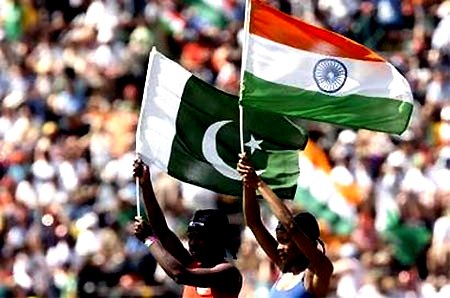By Pushkar Raj
Two recent legal developments underscore the dismal state of Hindu minority in Pakistan and Muslims in India. While Pakistan’s parliamentary legal select committee approved the Hindu marriage bill for its about four million Hindu population, two district courts in India began acquitting accused of the Muzaffarnagar Hindu-Muslim riots of 2013 in which 60 people were killed and thousands were displaced.
The proposed Hindu marriage bill that has come after 69 years however, is only significant in a sense that now Hindus in Pakistan will be allowed to govern their civil affairs according to their own customary traditions and they will be able to get their marriages registered and properties transferred. The bill will not address the abduction, forcible conversation and marriages of the girls of Hindu community as it has a contentious provision that lays down that if any one of the Hindu couple decides to convert to another religion, the marriage will be illegal.
While the proposed law, in a way, legalizes post marriage conversion, it does not put any deterrent on the pre-marriage abductions and conversions of Hindu girls. The majority of Hindu girls abducted, converted and married are below 13 years of age as post-puberty marriage of girls is allowed in Pakistan.
Pakistan Human Rights Commission has noted that Pakistan state has failed to save Hindus from ‘disgusting excesses such as forced conversion of young women.’ (10 August 2012).
A report of Movement for Solidarity and Peace, a human rights organization based in Pakistan, estimates that nearly 1,000 non-Muslim girls are forcibly converted to Islam every year.
According to Pakistan Hindu Panchyat about 1000 girls are forced to convert only in Sindh province of Pakistan each year. The courts rarely dispense justice to Hindus in Pakistan in the cases of forced marriages. So much so that a noted human rights advocate Amarnath Motumal, advises his community members not to go to courts with cases of forced marriages saying, “We close the doors when we go to courts for justice.” (The Express Tribune, 31 August 2014)
The conditions of Muslim community in India are no better as they have also been denied justice in a systematic way over and again.
The acquittal of the riots accused in the Muzaffarnagar riots cases (2013) recently is condemnable but not a new event as the instigators and executors of riots have gone unpunished in India for so long now.
Muzaffarnagar riots accused have been acquitted in six different cases including dacoity, gang rape and murder. (PUDR, Press Release, 21 February 2016)
In a similar way, a Delhi court in March 2015 acquitted all 16 accused in the 28-year-old Hashimpura massacre (Meerut riots, Uttar Pradesh 1989) citing insufficient evidence. 19 police force personnel’s were accused of picking up 42 men of the Muslim community from Hashimpura area of Merrut town and shooting them down at the nearby canal. A counsel for the victims and survivors, Rebecca John summed it, “If today is not the day we hang our heads in shame, there can be no other day”, she said after the verdict. (Times of India, 22 March 15)
900 people died in Bombay riots (1993). Only three convictions have taken place in those riot cases. (The Telegraph, 30 July 2015) The Sri Krishna Commission, set up to inquire into the Bombay riots recommended de-communalization of police force as it had found bias against the Muslims in the police firing incidents. The recommendations were never implemented.
The conviction rate in the Gujarat riots (2002) has been the worst so far, a negligible between 0.21 and 1.18 %. (Stanford Law School Gujarat Riots Report, May 2014) Certainly, despite the mammoth efforts of the civil society organizations and judicial intervention from the highest level- the Supreme Court of India-, it is a pathetic outcome that speaks for itself.
The Prevention of the Communal Violence bill remained unlegislated in the parliament for nine years from 2005 to 20014. It was withdrawn just before the 16th general elections by the Congress party that ruled the nation for ten years giving way to BJP in power in New Delhi. The present Prime Minister, Narender Modi, called the bill a ‘recipe for disaster’, signalling that the BJP has little interest in preventing communal violence legally. (The Hindu, 5 December 2013)
As the debate surrounding beef eating, sedition, anti-national, Bhartmata etc gets shriller at the behest of Hindutava forces, the Muslim minority in India is likely to come under more intense pressure. Thankfully, given the democracy in country, Muslims in India enjoy some political clout. Much of their state of survival will depend on how effectively the Muslims use this democratic power to counter the onslaught of political forces of the Hindu right which are the direct beneficiary of their continuous flogging.
(Pushkar Raj is an independent writer based in Melbourne. Formerly, he taught political science in Delhi University and was the national General Secretary of the People’s Union for Civil Liberties (PUCL), India.)






















